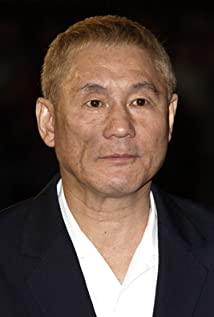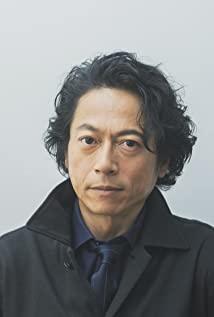David Bowie, Sakamoto Ryuichi, Kitano Takeshi, three famous names. Thirty years ago, they were in their prime, with a handsome look in their eyes. Director Nagisa Oshima, who is known for his sternness and harshness, recruited talented artists and popular musicians with no experience in filming to make movies. Such a strange cross-border combination has turned into a classic. The camera records their past. Youthful and fresh. The beginning is a very powerful music, there is strength in the calm, with sadness and struggle, heavy and touching the heartstrings. The film makes it easy to focus on the debut of two talented musicians together, on their looks, on the same-sex ambiguity, on that classic trance kiss. It is the first level of understanding. If you go deeper, you will notice the bitter anti-war awareness, the shining humanity in the cruel battlefield, the redemption of life in the years of imprisonment, and all kinds of panic. Some of this panic comes from cultural shock, confusion about life and death at a loss, and inexplicable admiration for the enemy. To look at this kind of emotion simply with "homosexual love" would seem weak. I never thought that the rebellious Jack loved Shi Noi from the beginning to the end. He just used this unrequited love to stop him at the moment of life and death. Yonoi's murderous intent. In his aloof inner world, this emotional intention is obvious, and it has strong pity and disdain. On the other hand, there may have really been feelings between the Dutch and the soldiers who died at the belly. There are so many things in the movie, it's hard to understand them all. What amazes me is that the director, as a Japanese, criticized the Bushido spirit that they have been practicing for generations, and even ruthlessly ridiculed and denied it in some places, which is quite radical. The different religious beliefs on the east and west sides are reflected in the two officers with similar personalities and strong reactions. They had a direct, face-to-face encounter. From the initial overwhelming strength, to the evenly matched each other, and then retreating. Lawrence overturned the shrine symbolizing the Japanese beliefs and smashed the photos. Under the fierce conflict, the balance has begun to tilt. From Lawrence's thorough understanding of the Yamato nation in his speech, it can be seen that the Bushido spirit worshipped by this anxious and collectively mad nation is just a self-deception that is only vain. At the end, Uehara, who was originally brutal and cruel, finally put on a Buddha bead and converted to Buddhism, with a pure smile on his face and learned English. Accepting the execution calmly, the Bushido spirit is gone. It is clear at a glance who is the real "evil spirit". To be able to stab my own pain points sharply in this domestic movie, Japanese movies The depth of self-reflection is amazing. For the shocking kiss in the movie, the picture appeared to be almost slow to stop and the focus was out of focus. This kind of weird shot was not intentional, but the machine had a little fault at that time. But for the two of them in this situation, they appropriately rendered the subtle absent-mindedness and thoughtfulness, and instead became a classic in the film industry. Afterwards, Director Nagisa Oshima couldn't help but sigh with the people around him, "This is a miracle."
View more about Merry Christmas Mr. Lawrence reviews











